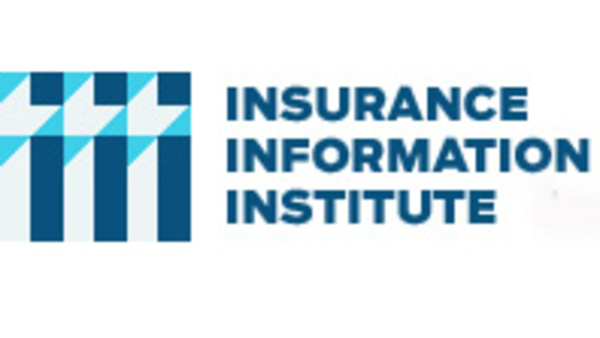PropertyCasualty360.com spoke with Sean Kevelighan as he makeshis transition from global head of public affairs for ZurichInsurance Group, where he was responsible for setting the insurancegiant's global public policy and corporate responsibility agendas,to becoming the new president and CEO of the New YorkCity-based Insurance Information Institute (I.I.I.)
|What factored into your decision to leave a privateinsurance company for I.I.I.?
|Sean Kevelighan: It was a difficult decision tomake, but I’m excited to have the opportunity. I’ve been fortunateto be able to understand, appreciate and work with I.I.I. closelyfor several years, starting in 2008 when I first joined Zurich. Igained a better understanding of the value that they brought to theindustry and the broader community as well. When I received thephone call offering me the job, I already had a strong appreciationfor the organization, as well as the work Bob Hartwig and his teamhave done.
|I’m sad to leave Zurich, because I had so many good years there,and people are wonderful to work with. I also had a chance to workwith directly Mario Greco as he takes on leadership role at Zurich,but the role at I.I.I. was too interesting to pass up.
|What do you see as the most critical issues for P&Cindustry?
|SK: There will always be immediate, bottom-lineissues that I.I.I.’s members care about. Some issues will be thesame whether it’s in workers’ comp and understanding variouscomponents of workers’ comp claims or as we’re seeing right now, arise in the severity and frequency of auto accidents. Those issuescontinue to be the main focus, but there are evolving issues thatcould have dramatic impact on the industry like digitalization, thesharing economy and big data.
|First and foremost, the P&C industry needs to stay focusedon the fundamental bottom line for insurance as a business. It’salso important for their customers who need to understand the valueof insurance as a whole, what it is and how it benefits them, andto gain more trust in insurance companies.
|Do you see the trend of P&C carrier consolidationcontinuing?
|SK: The current economic outlook certainlyseems to indicate that consolidation is likely to continue but it’sdifficult to predict specifics. The P&C industry is not goingto shrink as much as the health care markets, but the future of theindustry isn’t clear yet.
|Where do you think the P&C industry is heading, bothin the short term and the long term?
|SK: It’s difficult to predict but change isinevitable, whether through some consolidation in the industry orthe other disruptors that the industry is facing.
|The rapid changes in technology and digitalization are keyelements of change for the P&C industry; it’s only a questionof how or when, which are still unknowns. I.I.I. is doing extensiveresearch in this area, and I foresee this evolving.
|For the industry itself, it’s going to come down to theincreased potential for new competition. Some of the fundamentalsof insurance are also undergoing change, for example, productivity,claims handling, even underwriting and how technology plays a rolein all of them. Even the most fundamental role of insurance in riskpooling could change in the era of big data and how granular youcan get.
|I.I.I. will be actively engaged in helping the industryunderstand what this all means and helping our members understandhow they may want to embrace the changes.
Continue reading...
|
 Do you think there will be a trend or pushby the industry to have the government step in as an insurer oflast resort in more areas than it already does, for example, beyondflood and terrorism?
Do you think there will be a trend or pushby the industry to have the government step in as an insurer oflast resort in more areas than it already does, for example, beyondflood and terrorism?
SK: Where I see things going with governmentintervention is mostly likely around resilience, focusing on thepotential for various catastrophes, where they’re going to happen,and the ability to create more resilient communities. Whether it’sflood or cyber [risk], for example, the insurance industry andgovernments at all levels are going to have to work together andcreate a better understanding of how we can make communities andbusinesses more resilient to catastrophes we know are coming —whether natural or man-made.
|There are infrastructure problems throughout country and theworld. As projects are under way to upgrade or rebuild, we need tofactor in resiliency to natural catastrophes and otherdisasters.
|How do you think your background will help you atI.I.I.?
|SK: I’ve spent my career working in all theelements of public affairs, which I break down into four areas:
|1. Government regulators and policymakers.
|2. The business community, whichincludes the individual businesses themselves as well as tradeassociations.
|3. Relevant subject matter experts,such as academics and think tanks.
|4. And media, including tradepublications as well as the general press.
|For me, the interesting thing about I.I.I. is that theorganization straddles the business side of things as a tradeassociation in some ways. At the same, they have the relevantsubject matter experts and operate as a think tank. They provideobjective and credible facts, statistics and information to theP&C industry as well as the general public, so I think it’s agood fit for me.
|How do you see I.I.I. changing as the P&C industryevolves?
|SK: I.I.I. will continue to do what theorganization has done so well over the years under Bob Hartwig’sleadership and with his team. First of all, maintainingobjectiveness when looking at the information and letting the factsand statistics speak for themselves. I.I.I. does a great job ofgathering information and helping members and other key stakeholdergroups understand what the information means, and I expect that tobe an important role that we’ll continue to play with thoseimmediate issues that we’re seeing right now as well as the onesthat are evolving and changing the industry in the future.
|Bob and his team built a great foundation at I.I.I., and I lookforward to continuing to build the best organization we can.
|Related: Insurance Information Institute names SeanKevelighan president and CEO
Want to continue reading?
Become a Free PropertyCasualty360 Digital Reader
Your access to unlimited PropertyCasualty360 content isn’t changing.
Once you are an ALM digital member, you’ll receive:
- All PropertyCasualty360.com news coverage, best practices, and in-depth analysis.
- Educational webcasts, resources from industry leaders, and informative newsletters.
- Other award-winning websites including BenefitsPRO.com and ThinkAdvisor.com.
Already have an account? Sign In
© 2024 ALM Global, LLC, All Rights Reserved. Request academic re-use from www.copyright.com. All other uses, submit a request to [email protected]. For more information visit Asset & Logo Licensing.








